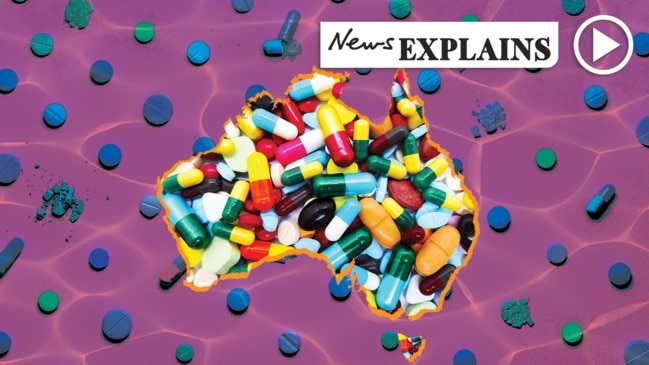Paracetamol use in pregnancy linked to ADHD, warnings urged
It’s one of the most prescribed medicines in the world, but recent studies suggest there may be a link between its use in pregnancy and newborns experiencing untoward effects.

NSW
Don't miss out on the headlines from NSW. Followed categories will be added to My News.
- Huge spike in natural birth injuries take terrible toll on new mumsRevealed: Dental waiting lists balloon out of control
Health authorities need to change the advice that paracetamol is safe for use in pregnancy, according to a leading Australian scientist after new research suggested a high risk of Attention Deficient Hyperactivity Disorder.
Professor Norman Saunders from the University of Melbourne’s Department of Pharmacology and Therapeutics Research said his team’s research has found a mechanism that suggests that some foetuses and newborns exposed to paracetamol may experience untoward effects.
As one of the world’s most widely used drugs, four in five women report using paracetamol while pregnant. The Australian Medicines Handbook (2019) states without qualification that paracetamol is “safe for use in pregnancy and breastfeeding”.
“My view is that the regulatory authorities should change their advice stating it is safe to urging caution,” Prof Saunders said.

His own research tracking animal models to assess how much medication crosses the placenta into the brain, coincides with a new study from Canada that links paracetamol use in pregnancy with a higher risk of Attention Deficient Hyperactivity Disorder.
MORE FROM JANE HANSEN:
Pete Evans’ spruiked ‘tribal living’ dream canned
Forget bronzed Aussie, Elle risks turning blue
Brave Noah just wild about little brother Harry
The study of 345 children born between 2007 and 2009 had meconium samples taken at birth to test for paracetamol, also known as acetaminophen, and followed up at age 10. Paracetamol was detected in 199 meconium samples (57.7 per cent) and ADHD was diagnosed in 33 of those children, or almost one in 10.
Compared with those with no paracetamol detected at birth, the dose-response association was detected with where exposure increased the odds of ADHD by 10 per cent.

The study, published in JAMA Paediatrics found paracetamol “exposure detected in meconium was associated with increased odds of ADHD.”
“The findings that ADHD and related brain phenotypes are associated with prenatal acetaminophen (paracetamol) exposure measured directly in meconium suggest that the safety of the drug’s use during pregnancy should be re-evaluated,” researchers concluded.
Prof Saunders said the new study was concerning and more thorough than a previous problematic study that linked paracetamol in pregnancy and autism. “That is the only plausible evidence so far that there may be a problem. Paracetamol is widely used, 60 to 80 per cent of pregnant women take it. Our experience so far is that most drugs go into the brain to some extent.”
Prof Saunders said some drugs are necessary in some pregnancies, including paracetamol, and pros and cons should always be considered.
“To take it for the odd ache or pain is probably not very sensible,” he said.
Originally published as Paracetamol use in pregnancy linked to ADHD, warnings urged


